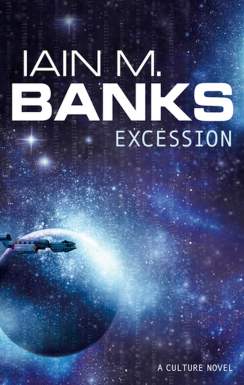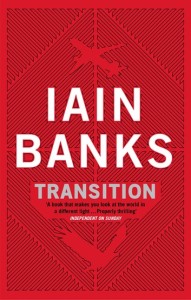 People change. It must have been 2008 when I started reading fiction again, and Iain Banks’ Culture series became among the first things I devoured. Excession was my favorite of the series back then, and I decided it was time to reread it – hopefully to be entertained and awed again, and, at the very least, to take a long, hard look in the mirror of time.
People change. It must have been 2008 when I started reading fiction again, and Iain Banks’ Culture series became among the first things I devoured. Excession was my favorite of the series back then, and I decided it was time to reread it – hopefully to be entertained and awed again, and, at the very least, to take a long, hard look in the mirror of time.
For those unfamiliar with Banks & the Culture novels: they are widely considered to be among the best in the genre. Hugely influential space opera, on a grand scale. And a big plus: contrary to most of today’s series, the nine Culture books – published from 1987 to 2012 – can all be read as standalones.
As hivemind Wikipedia has it, the Culture is “a utopian, post-scarcity space society of humanoid aliens, and advanced superintelligent artificial intelligences living in artificial habitats spread across the Milky Way galaxy.”
The Culture is technologically so advanced that it can practically do anything with matter, has access to FTL and nearly unlimited genetic technology. That results in near-immortality and, just to pick one example, the ability to change sex in about a year just by thinking about it. Banks hit upon a gold vein when he conceived of the Culture, as it allows for about anything to happen, but not in an inconsistent or random way.
Excession is about an unprecedented alien artifact appearing out of nowhere. It particularly zooms in on the reaction of a couple of so-called Minds – “benevolent AIs with enormous intellectual and physical capabilities” that often inhabit & control enormous ships of ten or more kilometers, some of them home to billions of individuals. These Minds all have distinct, at times eccentric, personalities.
The ‘excession’ of the title is a sphere that suddenly appears in space, seemingly older than the Universe, resisting attempts to be probed easily, its control of physical laws vastly superior to the Culture’s. It’s Banks riff on a Big Dumb Object.
Last time I read a speculative work of Banks was in June 2019, over 4 years ago. I didn’t think Transition was a success, and I vehemently disliked The Algebraist, which I started in 2018. Before that I read Inversions, and I didn’t really like that either. So I was starting to wonder: was I too easily impressed in 2008 and 2009? Or did, by sheer luck, I read all the Iain M. Banks books that where least to my liking last?






